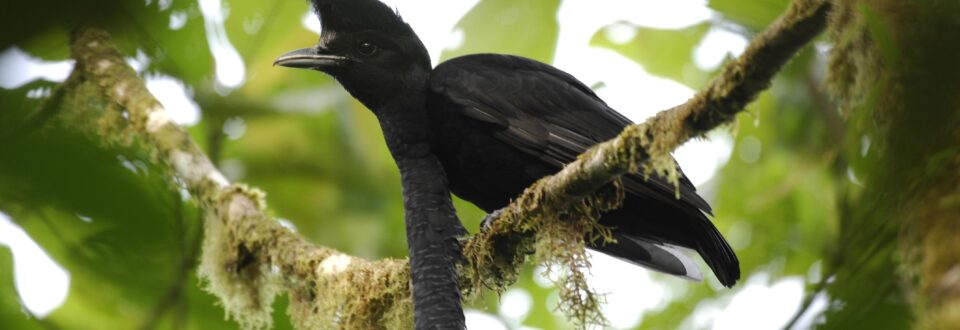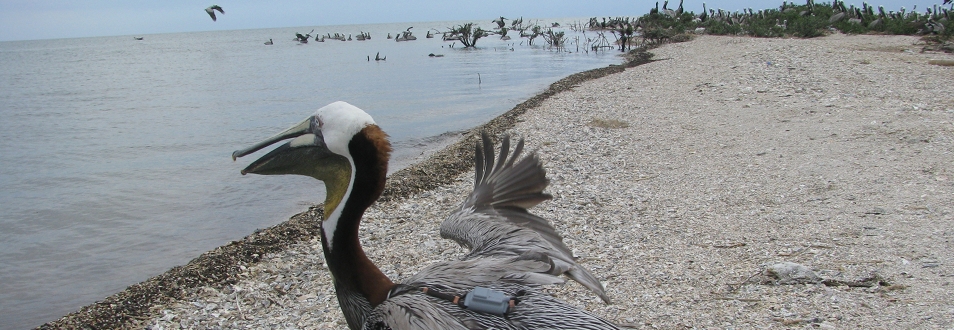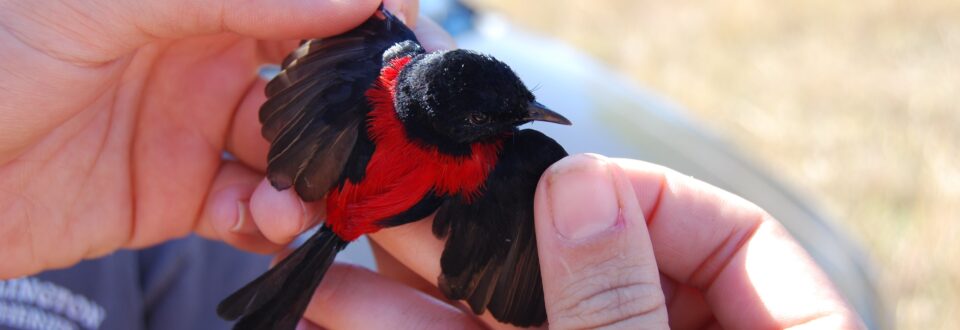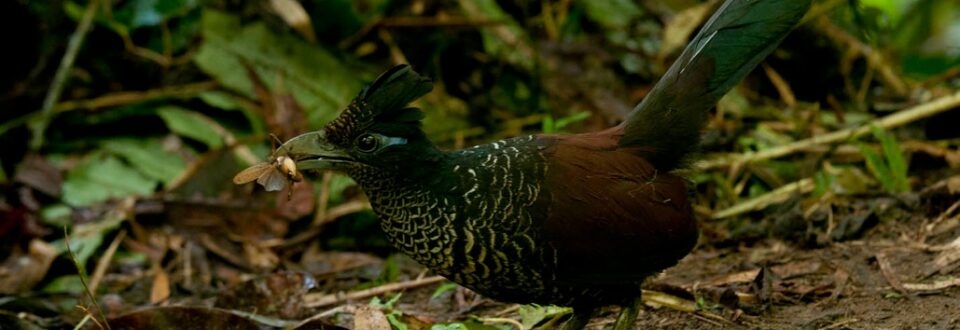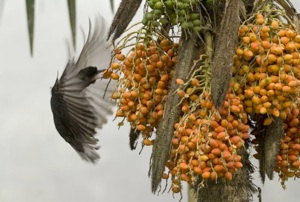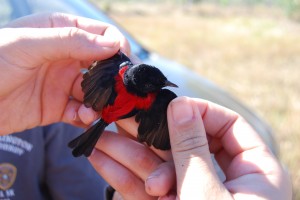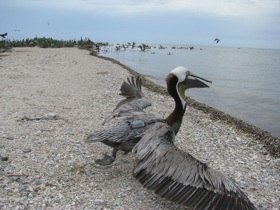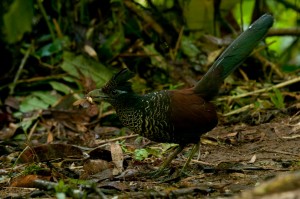Our lab works at the interface of ecology, behavior, evolution and conservation biology. The common theme uniting our diverse research projects is how environmental conditions, including both social and ecological environment, shape animal behaviors like mating strategies, foraging ecology, and expression of signals. Here, we provide overviews of our major lines of research.
Plant-animal interactions
In the tropics, most plant species depend upon animals to disperse their pollen and seeds. Our lab uses molecular analyses, field data and experiments to test how the behavioral ecology of animal dispersal vectors shapes the ecological and genetic structure of plant communities. Click here to find out more…
Sexual selection and mating systems
Sexual selection, the competition for access to mates, is one of Darwin’s great contributions to our understanding of the natural world. Our lab explores how factors like social environment, ecological environment, and phylogeny determine variation in male and female signals and behavior, and what the consequences are for mate choice and survival. Click here to find out more…
Gulf Coast ecology
Tulane’s position in southern Louisiana presents unparalleled opportunities to pursue research questions of both broader ecological relevance and considerable local interest. The Gulf of Mexico remains an imperiled region as a variety of natural and anthropogenic effects continually threaten to degrade the marine ecosystem. While recent management efforts have helped to slow these declines, more integrative work is necessary in order to understand how this wide variety of ecological processes affect the rich community found along the Gulf coast. Within the New Orleans city limits, residents and city officials struggle to respond to a suite of environmental challenges, both natural and man-made. One particular point of concern is lead, a dangerous contaminant that has been shown to have substantial negative impacts on humans in New Orleans and other U.S. cities, but whose effects on wildlife are less well understood. We are actively investigating both these topics. Click here to find out more..
Conservation biology
The tropics are home to more species of animal and plant than anywhere else on the planet, and many of these species are poorly known and/or threatened with extinction. Because we work primarily in the tropics, a core value of this lab is that our scientific research should contribute to conservation of biodiversity when possible. For this reason, our research goals include the basic biology, natural history, and conservation requirements of poorly known and endangered species. Click here to find out more…
We link the scientific research described on this page to training, education and development programs in priority habitats, as described in our Community partners page.

